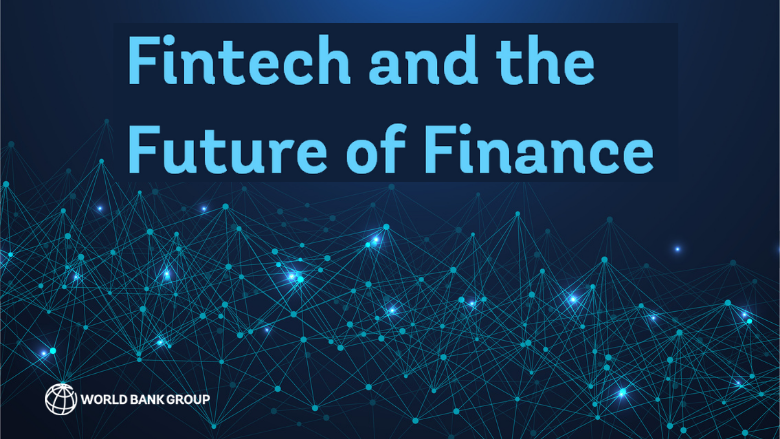The financial technology (fintech) sector has rapidly evolved over the past decade, fundamentally transforming how financial services are delivered and consumed. With the advent of digital banking, mobile payments, blockchain, and AI-driven financial tools, fintech is reshaping the global economic landscape.
Businesses and consumers increasingly rely on these innovative solutions to manage their finances more efficiently, access credit, and make investments with unprecedented ease. Among these innovations, loan automation solutions have emerged as a crucial element in streamlining lending processes and enhancing user experiences.
Fintech and Its Impact on Traditional Banking
The rise of fintech has significantly disrupted traditional banking models. Gone are the days when customers had to visit brick-and-mortar banks for every financial transaction. Today, fintech companies offer a wide array of services—from digital wallets and peer-to-peer lending platforms to robo-advisors and cryptocurrency exchanges—that can be accessed via smartphones and computers. This shift has not only made financial services more accessible but also more personalized, catering to the unique needs of each user.
Moreover, fintech innovations reduce operational costs for financial institutions, allowing them to offer more competitive rates and fees. For example, digital banks with no physical branches can pass on savings to customers at lower costs and higher interest rates on savings accounts. This democratization of financial services is one of the key reasons why fintech has gained such widespread popularity.
Traditional banks are now pressured to innovate and adapt to this new reality. Many are partnering with fintech companies to offer their customers better services and more advanced technologies. For instance, some banks have integrated digital payment platforms directly into their mobile apps, allowing customers to make payments and transfers with just a few taps. This seamless integration of technology and finance is one of the hallmarks of the fintech revolution.
The Role of AI and Machine Learning in Fintech
Artificial Intelligence (AI) and Machine Learning (ML) are at the core of many fintech innovations. These technologies enable financial institutions to analyze vast amounts of real-time data, leading to more accurate risk assessments, personalized financial products, and enhanced fraud detection mechanisms.
AI-driven chatbots, for instance, are revolutionizing customer service by providing instant responses to common queries, while ML algorithms are being used to predict market trends and optimize investment strategies. In the lending space, loan automation solutions powered by AI and ML are transforming how loans are processed, making the entire experience faster, more accurate, and user-friendly.
These technologies are also being used to create more personalized financial products. For example, AI can analyze users’ spending habits and recommend tailored savings plans or investment opportunities. This level of personalization was previously impossible with traditional banking methods, but fintech companies are now making it a reality.
Furthermore, AI and ML enhance fraud detection systems, making it easier for financial institutions to identify and prevent fraudulent transactions. By analyzing patterns and anomalies in transaction data, these technologies can flag suspicious activities in real-time, protecting the institution and its customers from potential losses.
Blockchain Technology and Its Influence on Fintech
Originally developed as the underlying infrastructure for cryptocurrencies like Bitcoin, blockchain technology is now being leveraged for a wide range of fintech applications. Its decentralized nature ensures transparency, security, and immutability of transactions, making it an ideal solution for cross-border payments, smart contracts, and identity verification.
In lending, blockchain can create decentralized lending platforms that operate without intermediaries, thus reducing costs and increasing efficiency. Coupled with loan automation, blockchain can further streamline the loan approval process, ensuring all parties have access to the same information and reducing the potential for fraud.
Smart contracts powered by blockchain are another fintech innovation gaining traction. These self-executing contracts, with the terms of the agreement directly written into code, can automatically enforce agreements without the need for a third party.
Blockchain is also crucial in improving the security of financial transactions. The technology’s decentralized and immutable nature makes it nearly impossible for unauthorized parties to alter transaction records, providing additional protection for consumers and businesses. As cyber threats continue to evolve, the importance of secure financial transactions cannot be overstated, and blockchain offers a promising solution.
Fintech’s Role in Financial Inclusion
One of the most significant benefits of fintech is its potential to promote financial inclusion. In many parts of the world, especially in developing countries, access to traditional banking services is limited. Fintech companies are bridging this gap by offering mobile banking solutions that allow users to open accounts, transfer money, and apply for loans without visiting a bank.
Digital lending platforms, in particular, are providing credit to individuals and small businesses that traditional banks previously underserved.
Additionally, fintech enables the development of microfinance initiatives that offer small loans to individuals and businesses in developing regions. Mobile banking platforms often facilitate these initiatives, allowing users to access credit and financial services through their smartphones.
Fintech is also making accessing insurance products more accessible for people in underserved regions. Digital insurance platforms allow users to purchase policies, file claims, and receive payouts online. This increased accessibility is helping to protect individuals and businesses from financial risks, further contributing to financial inclusion.
The Future of Fintech: Trends to Watch
As the fintech sector grows, several trends will likely shape its future. Open banking, which allows third-party developers to build applications around a financial institution’s data, is expected to lead to even more personalized financial products and services. Additionally, the increasing use of AI and ML will continue to enhance the accuracy and efficiency of financial decision-making processes.
Moreover, as more consumers and businesses become comfortable with digital financial services, we expect to see greater adoption of fintech solutions across various sectors.
Another trend to watch is the growing integration of fintech with other industries.
For example, fintech is increasingly integrated with e-commerce platforms, enabling seamless consumer payment experiences. Additionally, the rise of “embedded finance” allows non-financial companies to offer financial products directly to their customers, further blurring the lines between fintech and other industries.
Conclusion
Fintech is revolutionizing the financial industry, bringing about unprecedented changes in how financial services are delivered and consumed. With the continued development of AI, blockchain, and automation technologies, the future of finance looks more efficient, inclusive, and innovative than ever before.
As fintech continues to evolve, its impact will be felt across every aspect of the financial services industry. From improving access to financial products for underserved populations to enhancing the efficiency and security of financial transactions, fintech is poised to drive significant change in the future.



